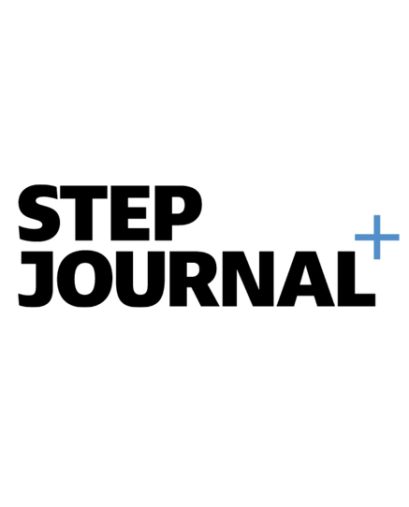Q1 Employment Roundup
by Julie Bann and Adrian Hoggarth
No obligation to continue providing childcare vouchers during maternity leave?
In Peninsula Business Services Ltd v Donaldson, the EAT held that childcare vouchers provided under a salary sacrifice scheme are part of the employee’s “remuneration” under regulation 9 of the Maternity and Parental Leave etc Regulations 1999, and therefore do not have to be provided during maternity leave. This decision potentially represents a significant change in the law that may affect how employers deal with benefits provided pursuant to salary sacrifice arrangements during maternity leave. However, the decision was made “tentatively” and is likely to be appealed.
Occupational Health knowledge of a disability could not be imputed to the employer
In Gallop v Newport City Council, the EAT held that an employee’s dismissal was not direct disability discrimination as the decision-maker did not know that he was disabled. The knowledge of the employer’s Occupational Health department in relation to the employee’s disability could not be imputed to the decision-maker in the disciplinary process.
A sum representing injury to feelings in a settlement agreement was taxable
In Moorthy v Commissioners for HM Revenue and Customs, the Tax and Chancery Chamber of the Upper Tribunal has held that a sum paid to an employee under a settlement agreement in respect of injury to feelings was not exempted from income tax under section 406 of the Income Tax (Earnings and Pensions) Act 2003 (ITEPA). Although there is an exemption in section 406 ITEPA for payments in relation to injuries, the Tribunal could not accept that, insofar as the sum represented damages for injury to feelings, it was a payment on account of ‘injury’. The meaning of ‘injury’ in section 406 ITEPA is context-specific. It could not be read as exempting all payments made by an employer in respect of an injury to an employee; rather, it was intended to apply to injuries that led to the termination of employment or to a change in duties or level of earnings.
Ill-health early retirement: employer had no duty to advise employee about ill-health pension option
A Local Government Pensions Scheme (LGPS) employing authority had no duty to advise a member of the option of applying for an enhanced ill-health early retirement (IHER) pension from active status on his redundancy in 2013 although it knew the member had taken sick leave in 2010 for a brain tumour.
The Pensions Ombudsman dismissed a complaint by the widow of a member who died in 2014. The member had applied for and been awarded an actuarially reduced IHER pension from deferred status under regulation 31 of the Local Government Pension Scheme (Benefits, Membership and Contributions) Regulations 2007 (SI 2007/1166) four months after his redundancy, rather than an enhanced IHER pension under regulation 20 while still employed. The Ombudsman held that even if the member had informed his employer about his deteriorating health while still employed, which he did not, “unless he had applied for an ill health pension, the Council, as his employer, had no duty to advise him of the option to take ill health retirement”.
The Ombudsman also held that there was no evidence the employer had misled the member into believing that his pension would be the same under either regulation. Finally, the Ombudsman noted that the employer’s refusal to retrospectively alter the grounds for the member’s dismissal from redundancy to ill health was an employment matter and therefore outside his jurisdiction. (Determination in a complaint by Mrs Sarah Ascough, 22 January 2016 (PO-7834).)
National Minimum (and Living) Wage
The Department for Business, Innovation and Skills has issued a new 55-page booklet on Calculating the Minimum Wage. It covers how to calculate the minimum wage, what counts as pay, what hours needs to be counted, and how to enforce the national minimum wage.
Data protection self-assessment toolkit for SMEs
The Information Commissioner’s Office (ICO) has launched a data protection self-assessment toolkit for small and medium sized enterprises (SMEs) on its website. The new tool is designed to help SMEs evaluate and improve their compliance with the Data Protection Act 1998 (DPA). It has also published an updated guide to IT security aimed at small businesses. The ICO encourages businesses to use the guide to assist with putting appropriate IT security systems in place, avoid data breach fines and comply with obligations under the DPA.
EHRC guidance on improving board diversity published
The Equality and Human Rights Commission (EHRC) has published guidance for companies on how to improve the diversity of company boards within the frameworks of the Equality Act 2010 and the UK Corporate Governance Code. The recommendations include defining the selection criteria in terms of measurable skills, experience, knowledge and personal qualities, and reaching the widest possible candidate pool by using a range of recruitment methods and positive action.
If you have any questions, please contact Adrian
Adrian Hoggarth Partner - Employment +44 (0) 20 7846 2370 adrian.hoggarth@jurit.comor another member of our Employment Team.
Please note this paper is intended to provide general information and knowledge about legal developments and topics which may be of interest to readers. It is not a comprehensive analysis of law nor does it provide specific legal advice. Advice on the specific circumstances of a matter should be sought.











